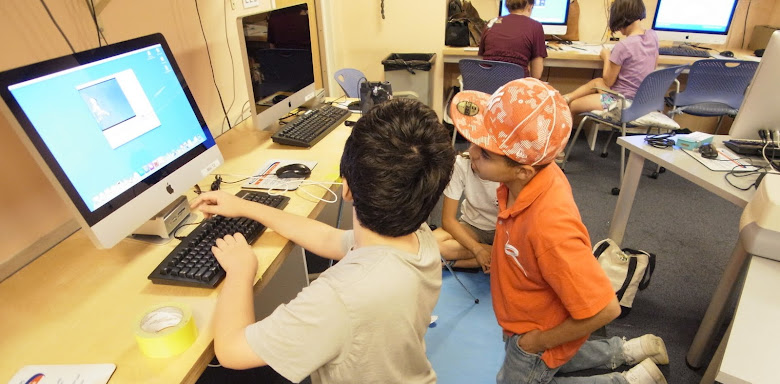In James Paul Gee's article, "Good Video Games and Good Learning," (Phi Kappa Phi Forum 85, No. 2, Summer, 2005), he notes that games are "hard, long and complex." He asks, "How do you get someone to learn something long, hard and complex and yet, still enjoy it?" He raises a really good point and says--"Humans actually enjoy learning, though sometimes in school you would not know it." This leads me to a question that I think about a lot--How do you motivate kids to learn? Gee makes an interesting point by saying that the context of schoolwork is mostly made up of facts--biology, world history, even math--and that these facts are basically trivia. Games are also made up of tons of trivia--the better you do in the game, the more facts you know.
Gee then goes on to look at various learning principles around games. Interaction, Risk Taking, Customization ("real intersections between the curriculum and the learner's interests, desires and styles), Well-Ordered Problems, Pleasantly Frustrating and System Thinking ("encourage players to think about relationships, not isolated events, facts and skills) are just some of the fourteen principles Gee talks about in terms of what students can learn from games.
Gee raises significant and excellent points. I enjoy watching my own kids playing games because I know that they are learning as they challenge themselves and their friends to a game. Games can be educational and are a great way to learn 21st century skills such as critical thinking, collaboration, cultural awareness and technology.

No comments:
Post a Comment